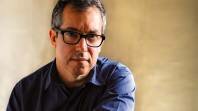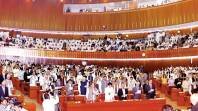Fewer facilities, absence of research culture, and insufficient salaries are contributing factors to the brain drain from Pakistan, even though the Higher Education Commission (HEC) continues to strive hard for brain reversal.
Talking to Pique, Dr Muhammad Masoom Yasinzai, Acting Rector, International Islamic University, Islamabad said internationally only PhDs are accepted as faculty members, but not in Pakistan.
“Quaid-e-Azam University (QAU) is the only university in the country where more than 70 per cent of the faculty is PhD; there are others with less than 20 per cent,” he said.
Universities are not strengthened by infrastructures and the number of students, but with qualified faculties.
Foreign-qualified PhD scholars are certainly good for teaching in higher institutions as they come with new ideas, methodologies and techniques. They bring advanced research cultures with them.
The HEC’s initiatives like the Tenure Track System (TTS), Incentivized Salary System, Research Grants System and job guarantee could facilitate brain reversal. “It should be very clear that we cannot forcibly bind anyone here in Pakistan. Enabling environment and incentivized system are needed to reverse brain drain,” Yasinzai said.
The HEC has sent more than 5000 scholars abroad on study and research scholarships. According to Yasinzai tangible results are not possible immediately because it is a slow process; we see advantage of such funding in the future.
In addition to the HEC initiatives, the TTS, Incentivized Salary System and research grants are attracting scholars from abroad. If such incentives remain in place people certainly will look towards their home country.
Incumbent Executive Director (HEC) Dr Mukhtar Ahmad told Pique that according to estimates in Pakistan only 25 to 30 per cent faculty is PhD and 70 per cent are with the required qualifications. A huge number of PhDs are needed to strengthen faculties; HEC has taken drastic initiatives to meet this shortfall.
The HEC has been spending more than 40 per cent of its budget on Human Resource Development by introducing various scholarship programmes. More than 2000 out of the 5000 scholars have returned and joined faculties. Meanwhile, approximately 9000 are PhDs in Pakistan.
“Normally we tried our best to ensure their return through strict bonds and guarantees that’s why the dropout rate is no more than seven to eight per cent” Dr Mukhtar said.
“We will not let the tax payers money go down the drain,” he said adding if they will not follow the bonds then the HEC will take them to court, from where we are getting relief. They have two choices either return back as per their commitment or pay back the grant, he said.
Talking about the brain drain dilemma he further said we should question ourselves why people prefer going abroad in spite of the lucrative incentives.
According to Dr Sohail H. Naqvi, former Executive Director of HEC indicators of higher educational standards in Pakistan are positive as access has been increased; research culture takes roots, number of international publications have grown and Pakistani universities are increasing in the international ranking.
“When I left the HEC, scholars’ return rate was more than 700 per year which has increased to 1000. The number of the missing was between 10 and 20,” he said.
The HEC has a well-organized mechanism for foreign scholarship progamme; we have up-to-date data of every scholar, and we keep in touch with respective institutions during their stay abroad. According to fresh data, only 50 cases were pursued in civil courts last year as per Supreme Court direction.
He said a scholar costs the government between Rs6 and 10 million.
Dr Jawad Hamdani, a foreign-qualified scholar placed at the International Islamic University, Islamabad under the Tenure Track System (TTS) programme told Pique that the TTS was based on quantity rather than quality as the number of research publications are important not standards; number of students hold worth, not quality. He said job insecurity is another drawback as under this programme there may be no job assurance for returned scholars.
The three-phased evaluation process is not transparent. Annual and three-year internal evaluation could be manipulated by groupings in the higher education institutions, while after three years during external evaluation, relations holds importance.
“You must have good relations with the TTS committee or else you might not get an extension” he said.
The writer is a journalist based in Islamabad.






















